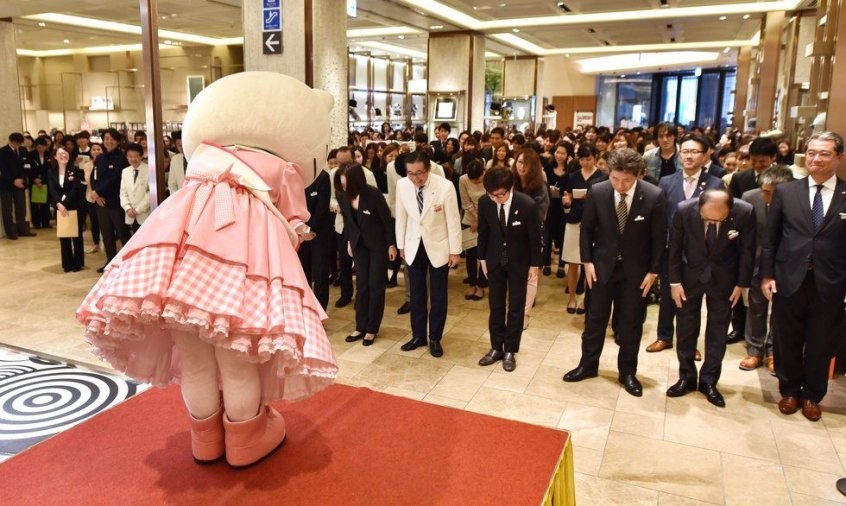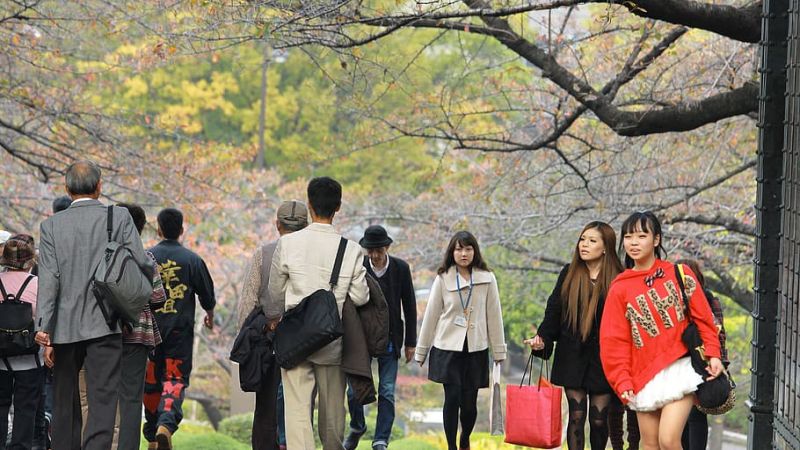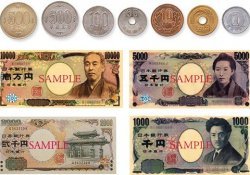Oriental culture is very different from what we are used to, it is loaded with principles and philosophies that govern a more peaceful, balanced and healthy life, based on well-being and respect for oneself and for others.
Even moving to a new country is an experience made up of a great mix of feelings and expectations.
Each culture is unique, but when the point of arrival is on the other side of the planet, the differences are even greater, whether in relation to lifestyle, food, schedules and routine, or even, at a more basic point, in the form of interpret the world.
Japan is a country that stands out for many unique characteristics and, in our Western thinking, they may even seem disparate.
For example, routine work on a production line of inductive sensor, to cite a practical example, is much more rigid and demanding than we are used to, and can be extremely exhausting and a little discouraging.
And, at the same time, the high quality of life they have, which encompasses physical and mental aspects, which move the Japanese in a continuous search for excellence, self-improvement and daily well-being.
If you want to live in land of the rising sun, it is important to understand their philosophies to adapt to the rhythm and obtain the expected qualification, to live well with the natives, in addition to taking advantage of all the opportunities and beauties of this country.
Well, thinking about all these points, we prepared this article to help those who are moving and want to make the most of the great Japanese wisdom.
Regardless of what your current motives, goals and opportunities are, whether you come to Japan for a promotion, or to start a life from scratch as a packer, or whatever opportunity you got, keep reading.
We brought 10 simple and very basic commandments, which will allow you to know this place, fulfill your dreams and conquer your goals. All this actively working for your well-being, for a pleasant and more comfortable life in this new phase.

Índice de Conteúdo
Assumptions for living well in Japan
The first point is to be open to the new learning provided by this vast and rich culture.
Forget prejudices and prejudgments as you go through the flow counter from the airport, be available for the new, and look your dreams in the face, always remembering that your capacity is their size.
In addition, some other points are:
01 - Respect and value the local culture
It doesn't take much study to understand how Eastern culture differs and, at times, is even paradoxical with ours. Unfortunately, many people, when dealing with what is new or different to them, end up being closed off and very resistant.
It was not for nothing that we started with this topic, as this is the biggest mistake of anyone going to a new country. Know the rules, customs and values of the local culture. You don't have to agree with everything, let alone try to act like you're a native.
But obligatorily, you need to genuinely respect the people, the country and its history. This is what will provide a good coexistence with everyone.
Learn about the immeasurable value of diversity, a parameter that can never be measured or automated by our human logical rationality, even if the most technological is developed. level sensor for this purpose.
It is not by chance that knowledge, plurality and respect for all living beings is something so valued by the Japanese, and so feared by all those who seek to maintain control of the masses, that is, the behavior of cattle.

02 - Learn the language
Fundamental to adapting to a new environment, being able to communicate will make your life in Japan much easier. Making an effort to speak the language fluently will only bring advantages and benefits to you, as you will have overcome the main cultural barrier: the language.
Start by learning common expressions, such as greetings, forms of treatment and thanks, and everyday words, such as the name of the most common foods, useful objects, such as supermarket basket or household items.
You can be sure that it will lessen the daily challenges like shopping or meeting people, it will open many doors, it will bring you new job opportunities and good friendships.

03 - Don't complain about everything and live in the moment
Starting a new life on the other side of the globe, especially if you are alone, is difficult but rewarding. The opportunity and experiences of living in a new culture are very valuable, whether for your professional, personal or psychological development.
And the fact is that there will be difficulties, whether in Japan or Brazil. We tend to think and value only what we don't have, and changing this point of view is a great lesson to learn from the Japanese, for example.
So live intensely and know how to take advantage of every opportunity. If you don't, you're sure to regret it one day.
Thanking you for the opportunity to be there, remembering your dreams, and opening yourself up to the experience will naturally make you feel lighter and happier. The rest is a consequence of that.

04 - Be careful with your expenses
It is very easy to be dazzled by the amount of news and all the technology available when arriving in Japan, whether for personal use or solutions for your business, such as industrial cleaning.
However, it is important to be careful not to compromise your income with frivolous and unnecessary expenses. Live with comfort and tranquility, but without squandering.
We advise you to write down your expenses in spreadsheets or use an application for this purpose. There are many options available. Also, aim to save a percentage of your monthly income, around 10%, minimum.
Thus, you remain financially assured to deal with possible situations and unforeseen events that may arise, such as health or domestic problems, such as the need to redo electrical structures and invest in a new one. autotransformer.
Having awareness and planning to deal with money is something very natural in Japanese culture. In fact, in the next two topics we point out basic strategies that the Japanese adopt to maintain their economic stability.

05 - Avoid debt
Pay your bills on time and avoid debts with loan sharks. In Japan, when you become delinquent and do not honor your financial commitments, you enter a “black list”, and you can no longer clear it from your history.
06 - Invest your money
Leaving money sitting in the account is synonymous with losing money, and the Japanese know this very well. Inform yourself and seek diversified forms of investments.
The natives will probably be able to give you good tips, as they are educated from a very young age to save and invest.

07 - Don't stop studying
Fight laziness and be always studying. We know how tiring and extensive the work routine is, but it is only with more knowledge that you will achieve more flexibility.
The world is constantly moving and updating. If this is a universal truth, in Japan it is almost a mantra.
Seek to progress, not only intellectually, but also spiritually, regardless of your religion or belief. Read good books and keep your body, mind and spirit healthy.
08 - Seek to qualify
Just to reinforce, as this point is of paramount importance: don't stand still inside your comfort zone.
Seek to specialize in whatever function, according to your skills. At japanese companies they look for specialized labor for any activity, and this improves their remuneration.
Know that this is true for any sector or segment in Japan: from large technology corporations, to manufacturing industries and basic services, as a garbage collection company.
Having technical education and being able to prove it can open many paths. For example, working as a welder, as long as you are well trained, can earn you more than 3,000 yen per hour.

09 - Don't limit yourself to contractors
For those who have just arrived, contractors can be a great solution, as they are easy options for work. However, some do not pay overtime correctly, in addition to omitting certain labor rights, for example:
- Health insurance;
- Unemployment insurance;
- Retirement;
- Paid annual leave.
So, once you've mastered the language and are studying to qualify, fly higher and look for jobs with better pay.
10 - Consider other forms of income
If your current job isn't very profitable, don't settle. In Japan there are many opportunities for alternative sources of income, especially for those who master the language.
A great option is to act as an interpreter in your spare time. Furthermore, by getting to know the local culture and philosophies such as Ikigai, for example, will realize that they have skills that they did not know or devalued.
This is a philosophy of self-knowledge in the sense of understanding your gifts and your mission in the world, and you may be surprised at what you discover.

Final considerations
By reading about these tips on ways to adapt to life in Japan, and living very well by learning from the local culture, you can already see how simple attitudes can bring quality of life and well-being to you and your family.
Take advantage of your stay in Japan to learn about the practical benefits of a simple, natural and balanced life for maintaining mental, physical and spiritual health.





